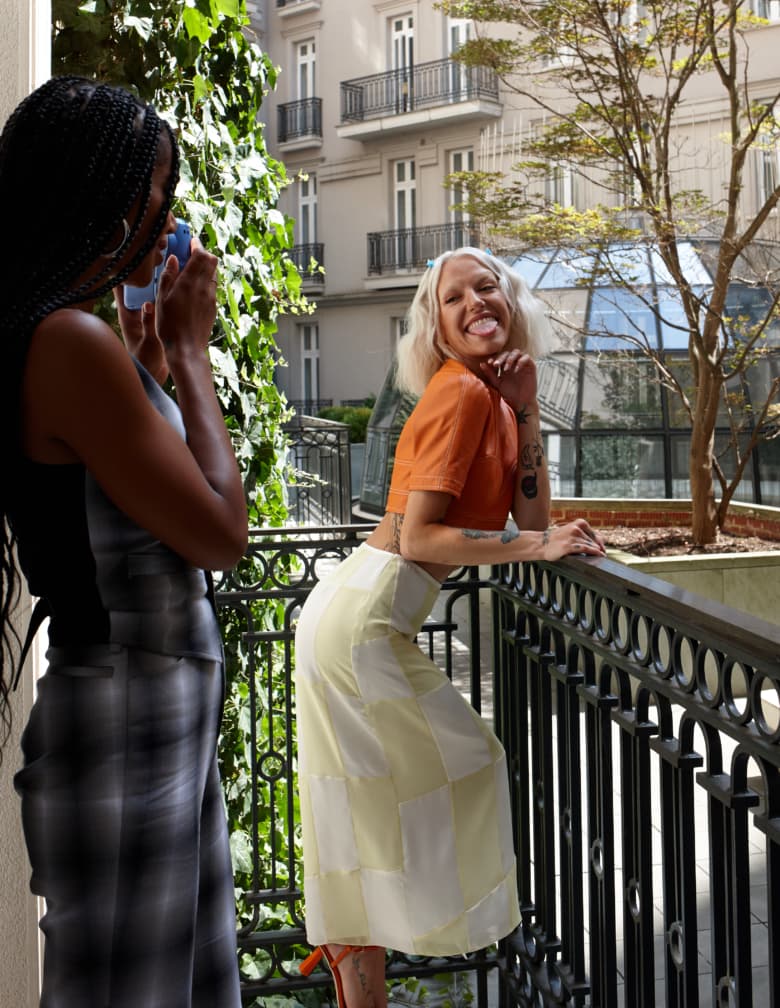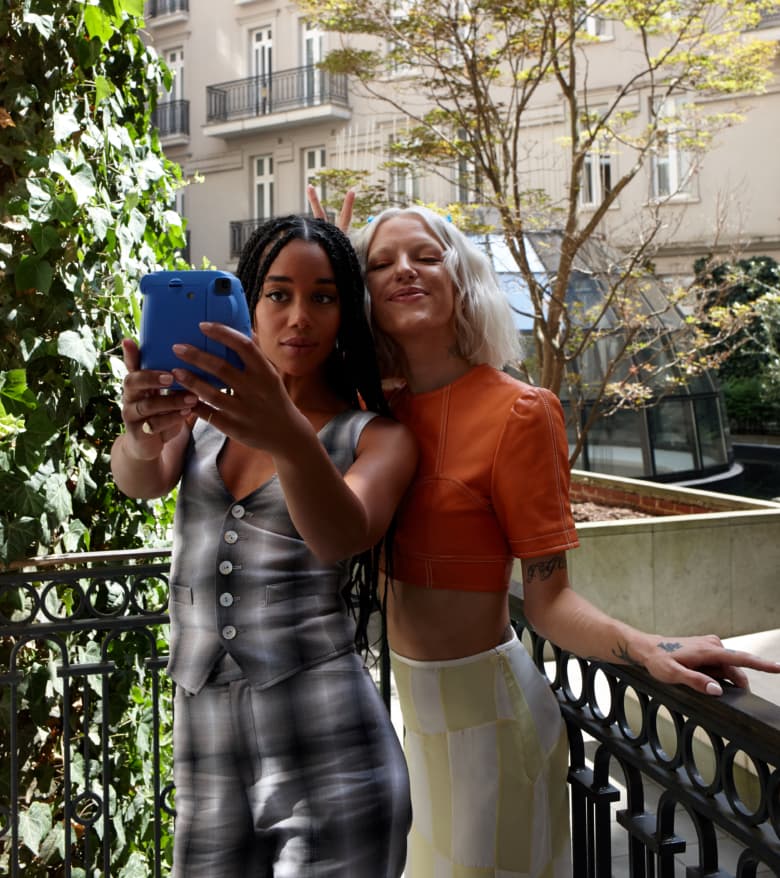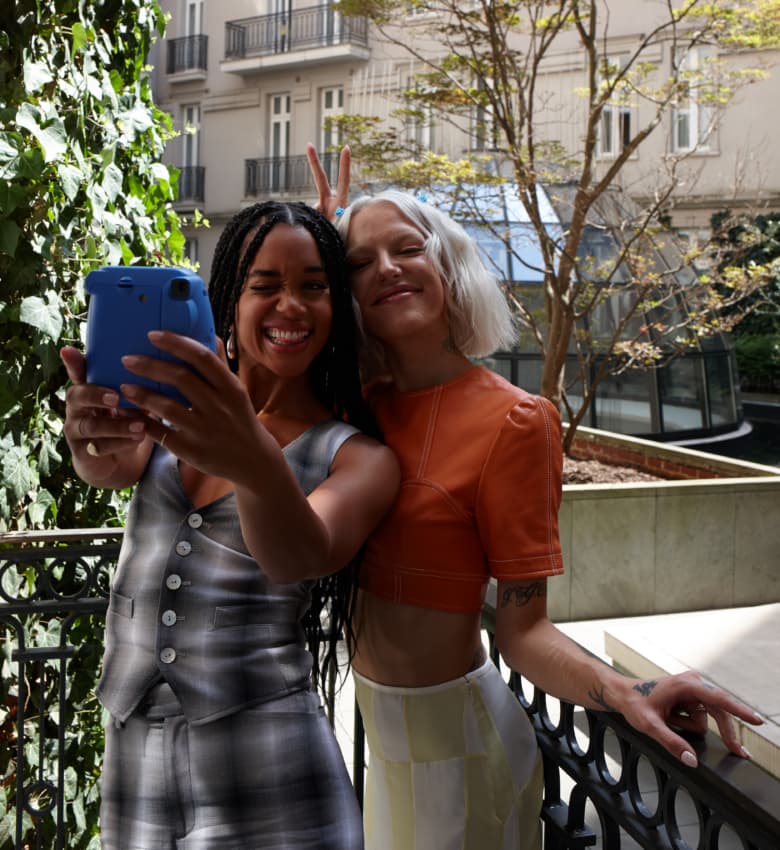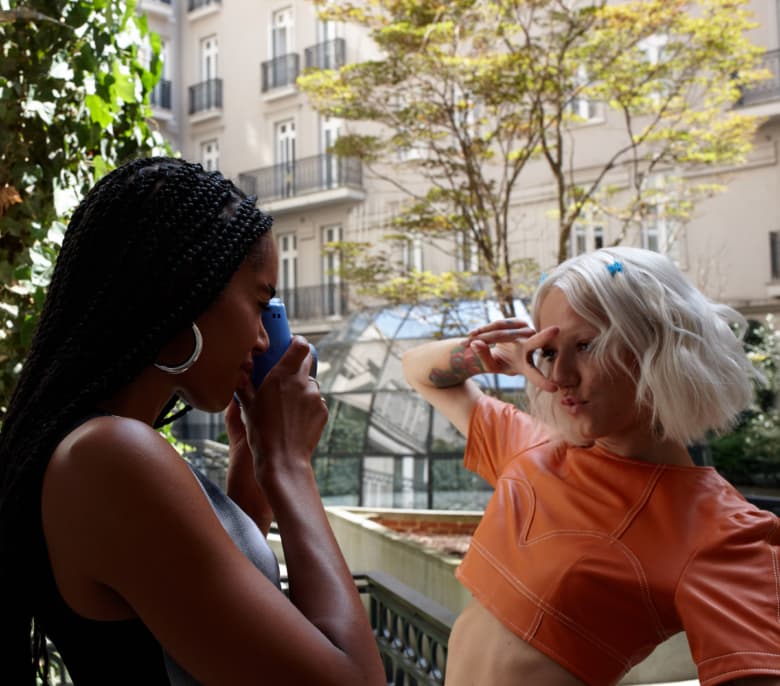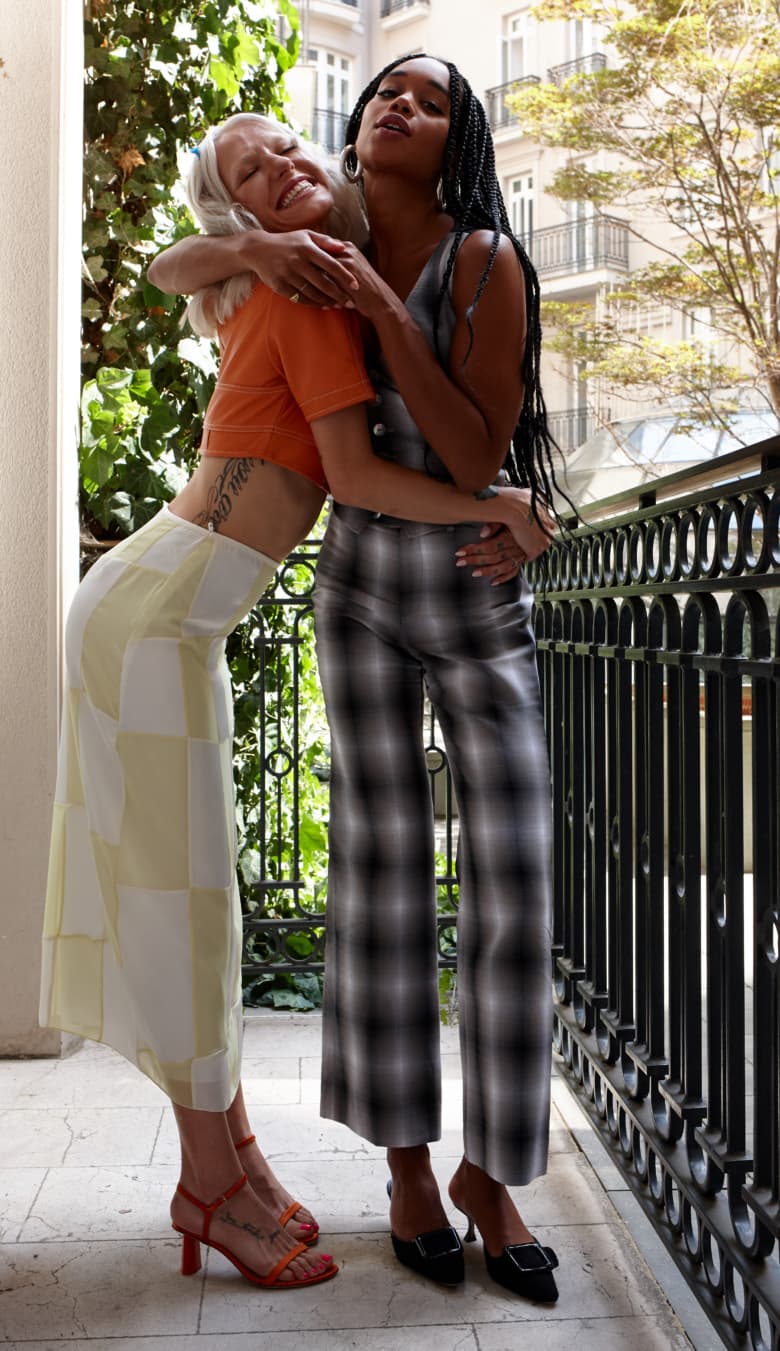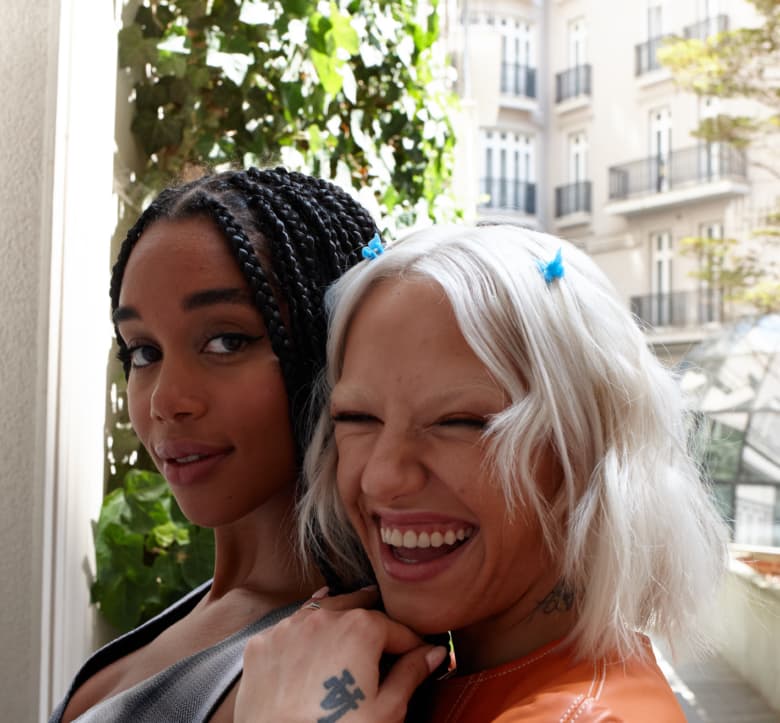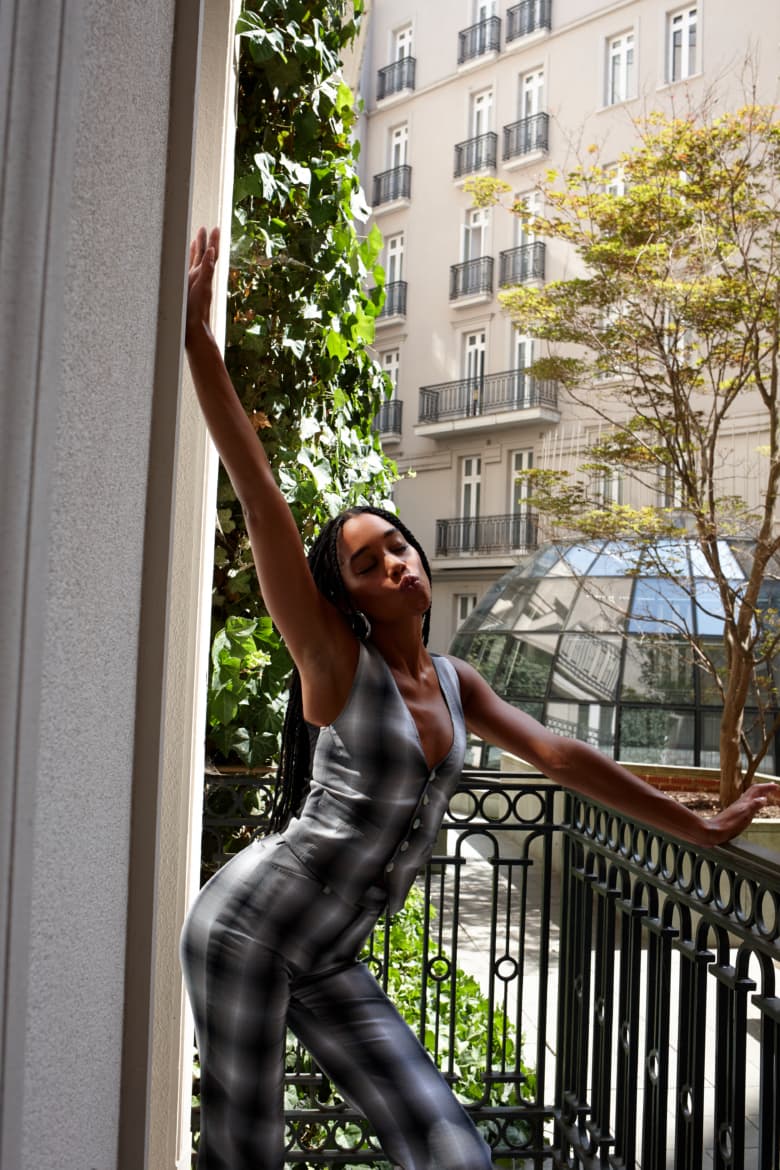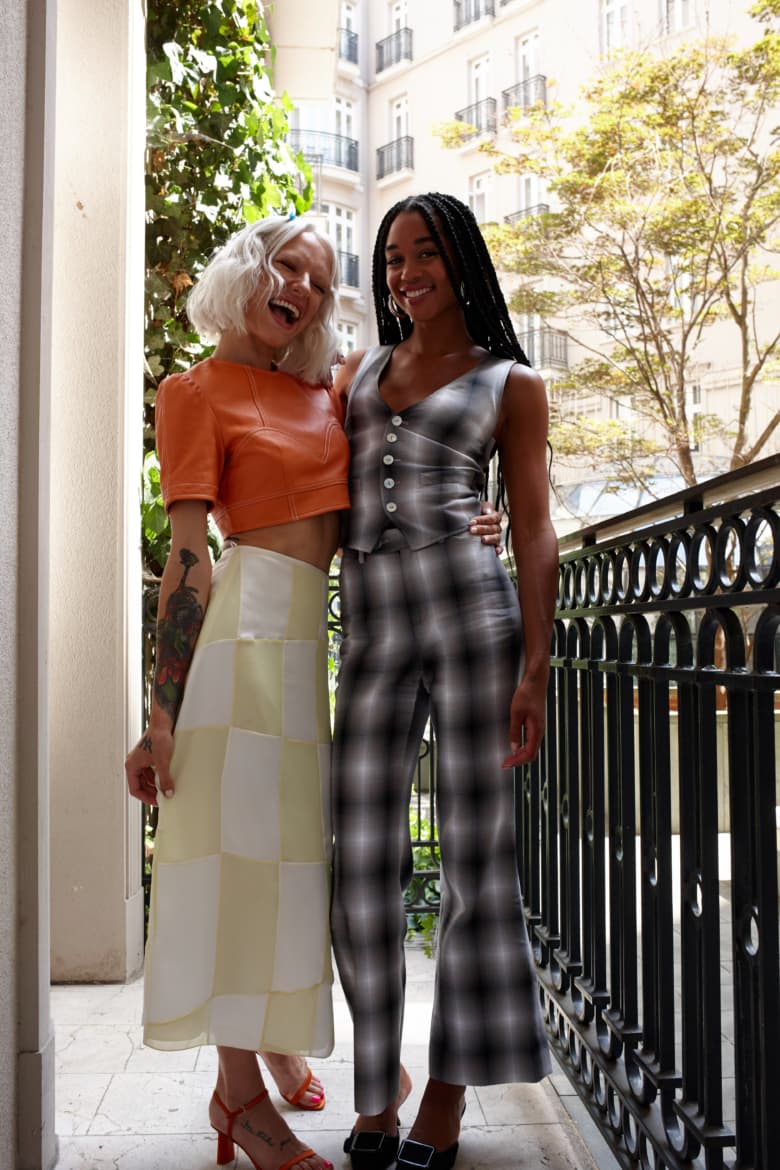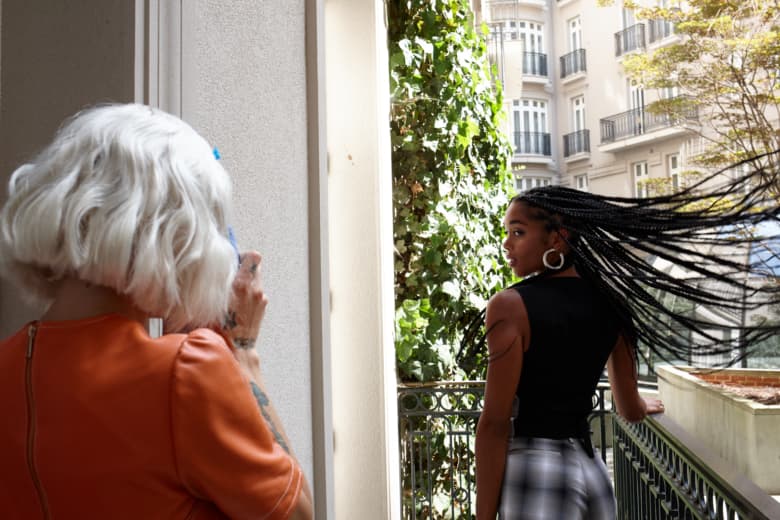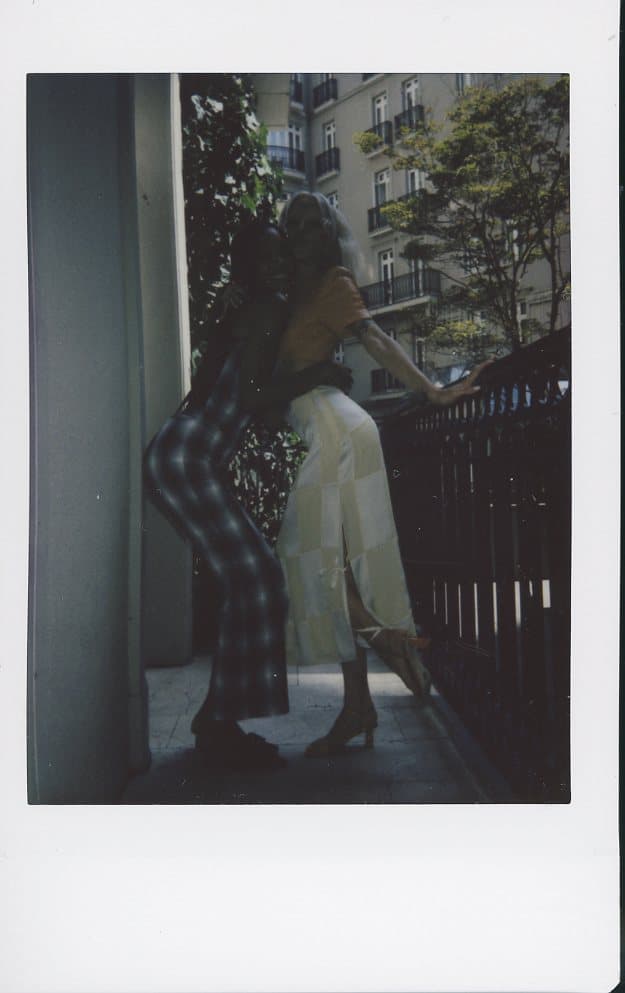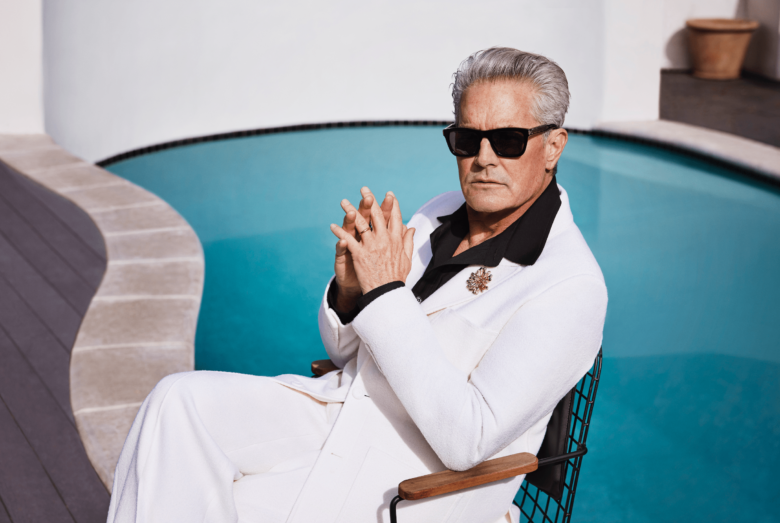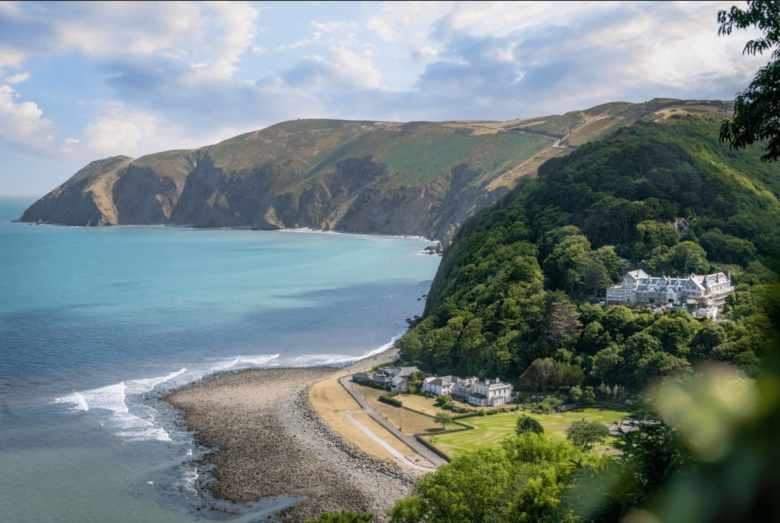Bria Vinaite and Laura Harrier on working together and the power of cinema
On London’s hottest day of the year, HUNGER sat down with Bria Vinaite and Laura Harrier, neither of whom had broken a sweat, because they’re just way too cool. Having met back at a Teen Vogue shoot for the 2018 Young Hollywood line up, the two formed a friendship as Instagram-worthy as it is full-of-heart. And then, one fine day, British indie filmmaker Jamie Adams poached the pair for his latest endeavour, Balance, Not Symmetry. A tale of grief, art and – most vibrantly – the power of female friendships, Bria and Laura’s casting is an apt fit. From real life pals to silver screen sharers, the film captures the full picture of friendship for women, warts and all.
In the wake of Time’s Up and #MeToo, female stories are becoming more sought after, as well as even more needed. Long simplified and reduced, 2019’s female characters and the people creating them show the times are a-changing: we’ve had Olivia Wilde’s Booksmart, we’ve got Greta Gerwig’s Little Women coming soon and a London Film Festival with 60% of the competing films being directed by women. It seems as though it is becoming a positive time to create as, and hopefully a more positive time to be, a woman. As Bria poignantly describes, “Thank you to all the women [of the film industry] who paved the path for us”.
Rising to fame as the heart and soul of The Florida Project, having been Insta-discovered by director Sean Baker, Bria Vinaite is proving herself to be far more than a one-hit-wonder. Having taken on a major role in Netflix hit The OA, she’s next up in Todd Wolfe’s Adultland amongst other carefully chosen films, always holding a presence way above her years of experience. Laura Harrier, too, brings something very special to her projects, with the poise of Audrey Hepburn and the integrity of Pam Grier. Starring in Spike Lee’s 2018 masterpiece BlacKkKlansman, Laura championed Black history and proved herself to be one-to-watch. Up next, the Chicago-born actress is working alongside Tom Hanks in Miguel Sapochnik’s BIOS as well as Theodore Melfi’s The Starling.
HUNGER caught up with and captured the two actors you need to know, talking all about the journey to working together in the depths of Scotland, what it’s like to be an actor in the new age, and just how powerful cinema and the arts can be…
How did you guys get involved with this project?
Laura: For me, it was really sort of this new way of film making I hadn’t done before, I kinda did it was a creative challenge and I’ve never done a film that was mainly based off improv, so that was really attractive to me. It was something new. And getting to work with Bria, it was just all a cool experience.
Bria: Yeah same for me I just feel like I really wanted to challenge myself, and I didn’t know when I would get the opportunity to work on a film like this with my friend as well. So just both of those factors made me really excited.
How did you find being immersed in the depths of Scotland for that amount of time?
Laura – Cold. (laughs)
Bria: It was super beautiful, but I don’t think either of us were expecting for it to be that cold. (laughs). We were filming in September but I packed two full suitcases of everything incorrect for that weather. We had to buy sweaters and everything.
Laura: But it was beautiful, we got to shoot out in the countryside as well in the city, it was stunning.
Bria: It was gorgeous.
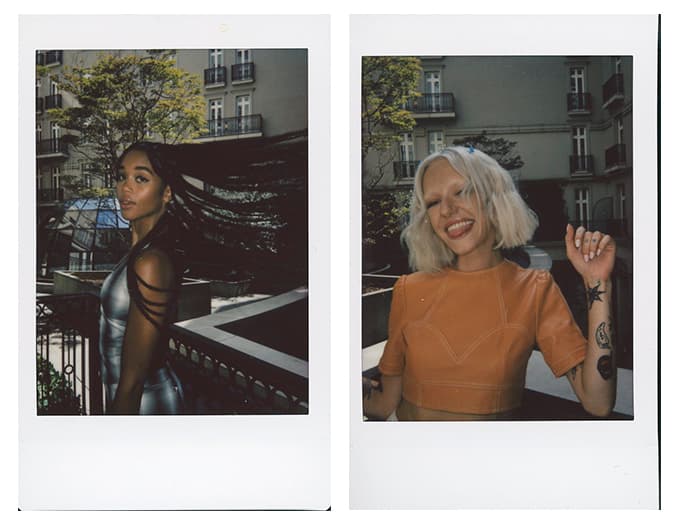
What do you hope people will get out of this film?
Bria: The importance of friendship.
Laura: Yeah, I think it’s really rare to have a movie about friendships, about female friendships, and it’s not made about something romantic or they’re not fighting over a guy. It’s really just about these two girls who love each other, and they’re the most important person in each other’s lives. They have a lot of hardships that come up, but with each other, they’re able to deal with everything.
If people could take away one message to learn what would that be?
Bria: Well for me I think it would be to be more understanding of a friend if they’re grieving someone, because I feel like Hannah [Bria’s character] was selfishly frustrated with [Laura’s] character. I just think it’s because she didn’t understand that grieving isn’t an overnight thing: you have to wait, you have to give it time, you can’t just expect someone to get over something overnight. I think that’s really important for friends and everyone to know in general.
Laura: I think for Caitlin [Laura’s character], her art really helped her process and deal with her emotions, her grief, as well as her friend. I think it talks about how important it is to preserve your friendships and nurture them.
Did you guys relate to that? Art being this cathartic process?
Both: Yeah for sure.
Laura: For me it’s acting, but for other people its painting or making music, I think just doing something creative is so emotionally helpful.
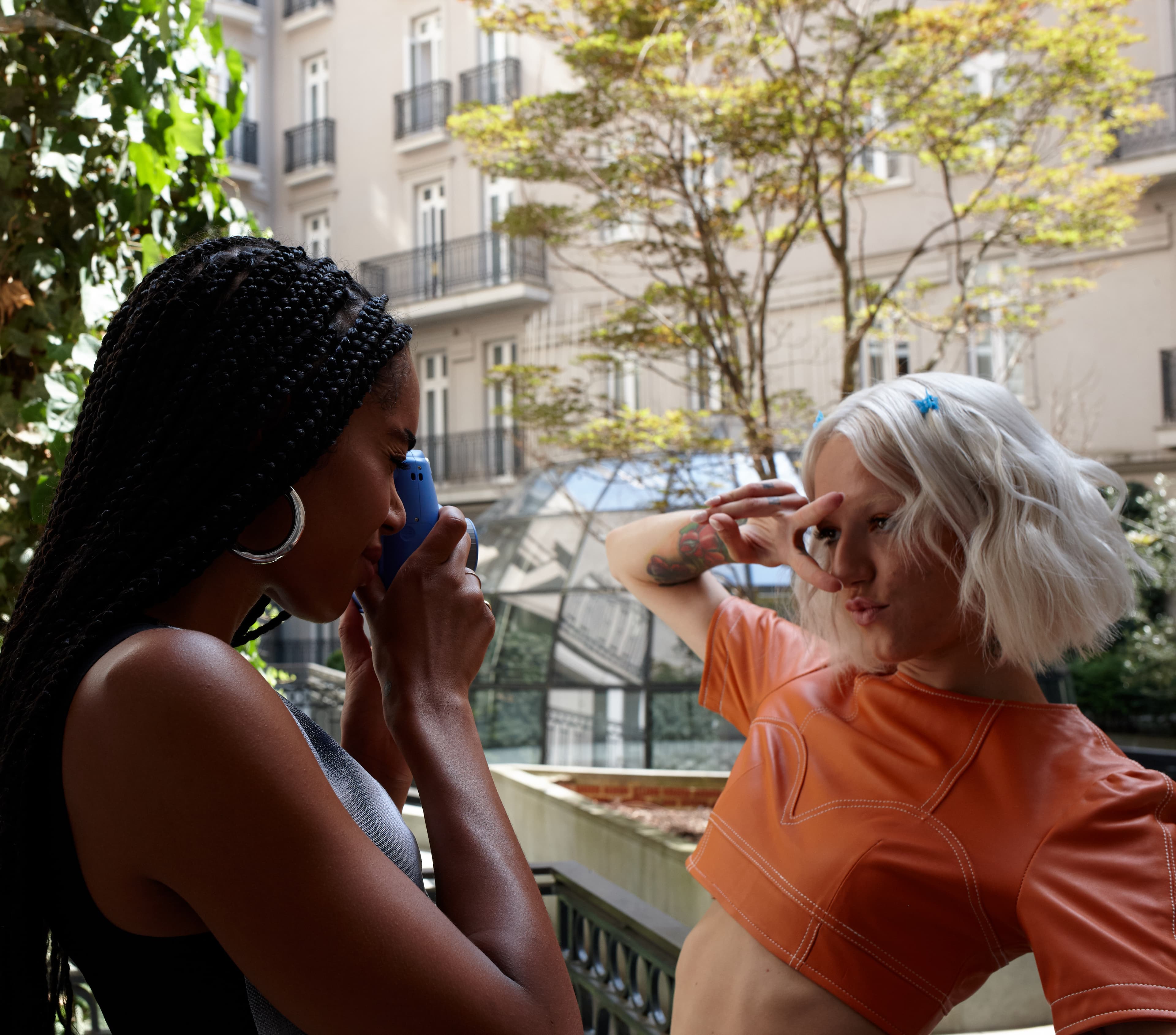
Do you think it’s important to be telling these stories now? With what’s happening in Hollywood and beyond, how does it feel to be telling these kinds of stories, of women’s ordinary lives?
Bria: I’m just very thankful that we have the opportunity to be able to share the relationship with these two young women. I’m very thankful because I think that both of us sort of came into the game at a very positive time, where change is starting to take place. I mean thank you to all the women who paved the path for us – not only necessarily in the roles of actors, but it’s also directors, it’s also producers, everyone behind the scenes. I just think having more women in those roles will be able to tell more stories that just can’t get told by men.
Do you remember when you fell in love with cinema?
Laura: Yeah, I was little, I think that was kind of made me want to become an actress? I just loved movies to begin with, but then I really got into directors, I wanted to be an auteur. Then I got into Spike Lee’s films and the more I learned about movies, the more I wanted to be a part of them.
Bria: Yeah, I feel like the first movie that I remember that made me become obsessed with films was funnily Girl Interrupted, but I would just watch it over and over and be like ‘wow!’ I was so mind blown at these performances and all these characters, and I think that was the movie that made me really get into watching a bunch of different stuff.
Do you have a cinematic icon?
Bria: Oo that’s really hard-
Laura: –Audrey Hepburn.
Bria: Oh ok! (laughs) I would need a few days to think about that…
What about movies that really shaped you? I guess Girl Interrupted was one for you, Bria…
Bria: Yeah it made me crazy and moody and nice all at once. That was everything I wanted to be when I was younger.
Laura: I don’t know when I really got into French new wave movies but seeing Anna Karina and all those beautiful glamourous women… Old Hollywood types like Audrey Hepburn, Catherine Hepburn, Dorothy Dandridge: women who were gorgeous, strong and intelligent. As a kid it was these women, who were these gorgeous figures but that were interesting, smart and sexy, and that’s what made me think “oh I want to do that”.
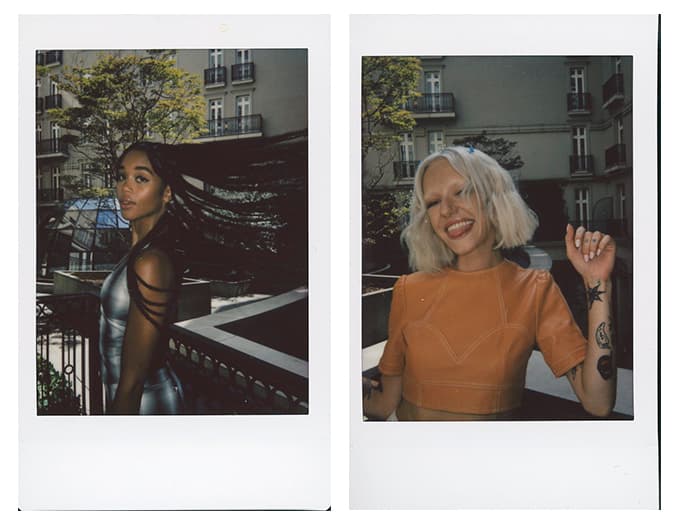
Do you feel like art has the power to cause change?
Both: Absolutely.
Laura: I think the best way to show someone your point is through art because a lot of times people understand things in different ways, some people need to read it and some people need to see it you know. I think for those people it’s important to be able to show them things that they can walk around. Whatever form of art it is, if it makes somebody think then it’s doing its job.
Bria: Yeah, I think in a way art can be this mirror held up to society, one that reflects what’s going on in the world. It can be in a way that maybe people hadn’t thought about or seen before: they can experience the world through someone else’s eyes and point of view, walk in someone else’s shoes, that can really reflect change hopefully positively.
Does that affect what sort of roles you choose? When you think about the power it can have as a film?
Laura: Yeah definitely I mean I don’t think you have to only do that, I think there’s also importance in cinema as entertainment, it’s an escapism as well. But I do think it’s important to be conscious of the types of stories that we’re telling, and the images we’re putting out in the world: the way we’re representing women, the way we’re representing people of colour. It’s important to realise that all of these images reflect how people see themselves, so I think about that when I take roles for sure.
Bria: I definitely agree, I feel like when I read a script, I just really want to feel something. Definitely, there’s creating for entertainment’s sake… But when you read those special scripts and think “wow I need to tell this story”, those are the projects that I really want to work on. I just think it makes the performance: everything is better, because you really, really care from deep, deep down.
